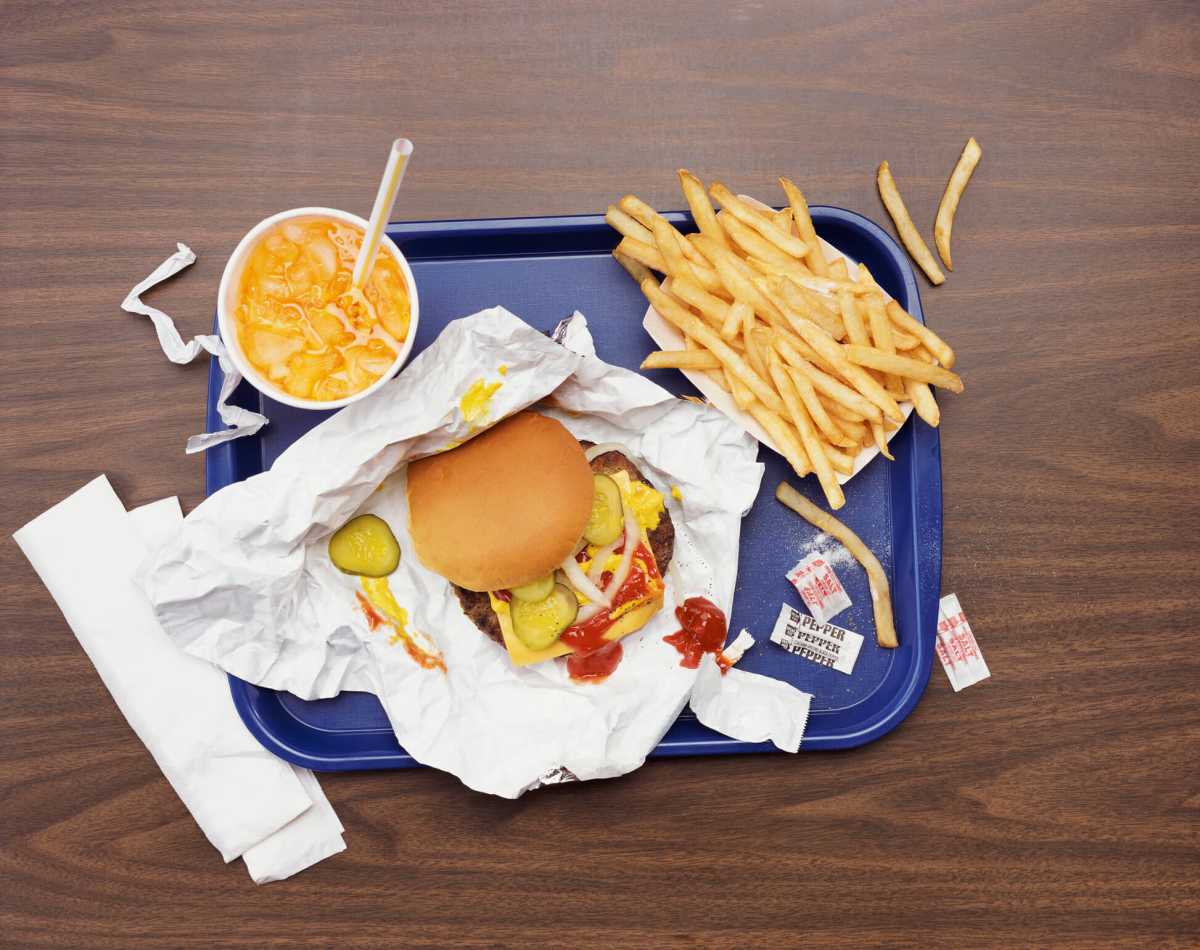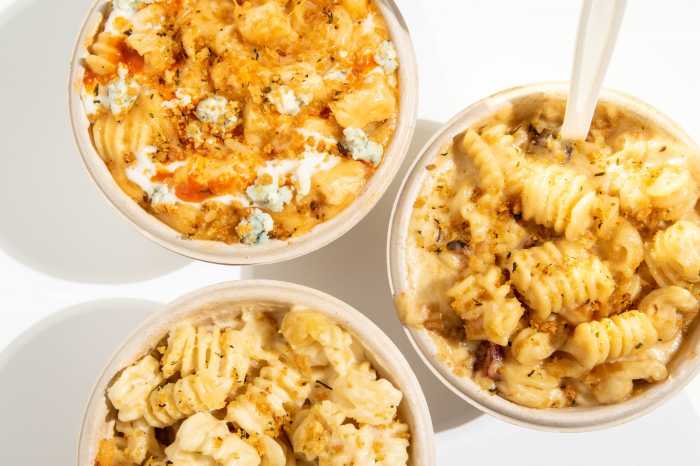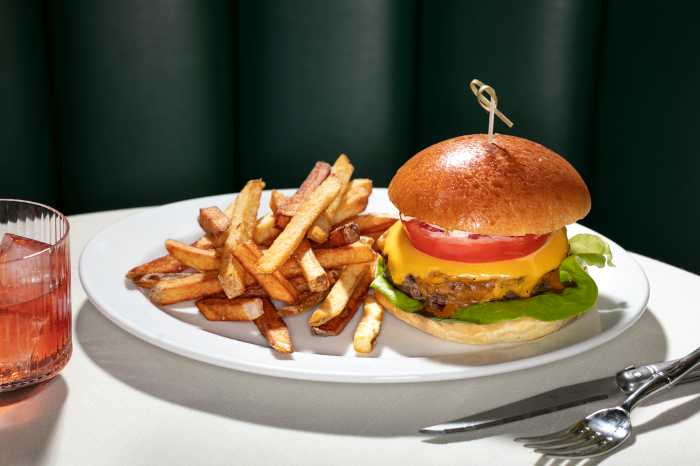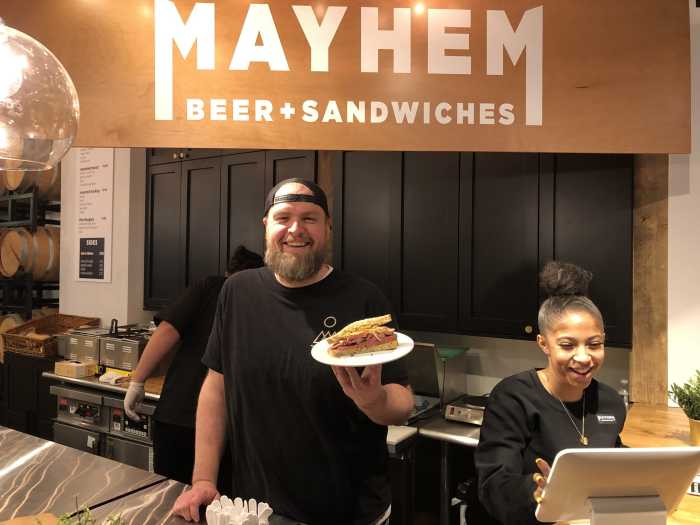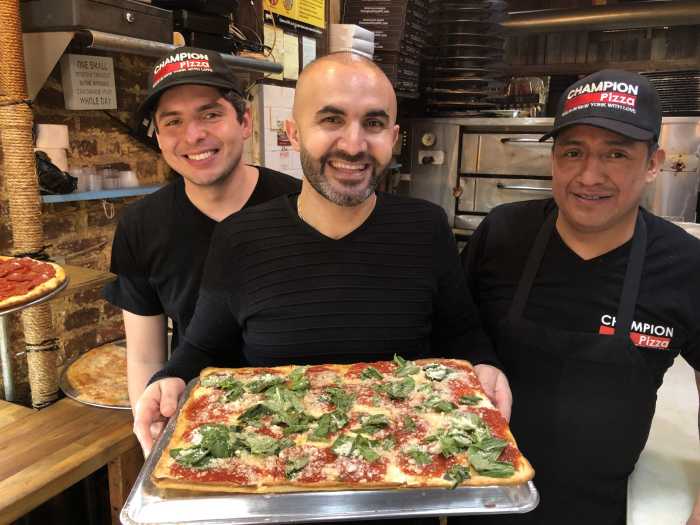New York City has over 2,000 chain restaurants, many of which are fast food restaurants concentrated in Black and Latino neighborhoods. These restaurants consistently offer foods and drinks that exceed the daily limit for added sugars, making it nearly impossible to eat at fast food chains while also maintaining a healthy diet.
Restaurant chains in New York are required to provide information about calories and, thanks to a 2015 policy, menus in the city also now carry warnings for items that contain more than a day’s worth of sodium (salt). But chains don’t have to provide information about added sugars at the point of purchase to help customers make health-conscious choices.
We think they should. If customers knew that a “small” or even “kids” sized regular soda could contain more than a day’s worth of added sugars, they might buy less of it, and restaurants may be pushed to offer healthier options.
Forget the Big Gulp, many New Yorkers would be surprised to see even everyday menu items marketed as normal portions can carry huge amounts of added sugars, making sugar-laden meals the rule, not the exception. The Center for Science in the Public Interest (CSPI) published a study in July which found that even most “small” drinks served at the largest chains contain more than a day’s worth of added sugars.
New Yorkers have the right to know this information, and the Sweet Truth Act (Int.1326), sponsored by Councilmember Mark Levine, will give them the knowledge they need to make informed decisions about their diets. This bipartisan legislation would require chain restaurants to provide warnings on menu items with more than an entire day’s worth of added sugars (50 grams).
Getting the facts about what’s in our food is even more critical in the age of COVID-19, when sound nutrition is more important than ever. Physicians in New York have treated too many patients with conditions linked by a growing body of evidence to excess consumption of added sugars, including type 2 diabetes, hypertension, non-alcoholic fatty liver disease, and hyperlipidemia – all of which are considered comorbidities and potential complications of COVID-19.
Even more troubling is the fact that African American and Hispanic youths are exposed to more marketing for sugar-sweetened beverages than their white counterparts. A recent report by the Rudd Center found that in 2019, chains such as McDonald’s, Domino’s, and Taco Bell, spent over $1.5 billion on TV ads to target Black and Hispanic kids and teens. Almost all of these fast-food ads promoted full-calorie, adult-sized, regular menu items, rather than kids portion meals. In a city that idolizes fast-paced lifestyle and ‘on-the-go’ meals, New Yorkers deserve to be armed with the facts that will let them see through this marketing hype. That’s what the Sweet Truth Act will do.
Without restricting people’s access to sugar, the Sweet Truth Act empowers consumers to see the truth behind the deceptive marketing, and ultimately take control of their own health and the health of their kids. That’s something few people outside the soda industry would argue with.
And in fact, there is no argument for most New Yorkers. A poll this spring showed that 85 percent of New York City residents (and 78 percent statewide) support warnings on menu items with more than a day’s worth of added sugars.
The Sweet Truth Act is the next step towards combating the negative effects of excess sugar and improving the health of not only our children and youth, but all New Yorkers. This is why we are encouraged to see that the Sweet Truth Act is gaining bipartisan support in the City Council – council members should pass this legislation before the end of the year.
Dr. Ileana Vargas is a Pediatric Endocrinologist and Assistant Professor of Pediatrics at Columbia University Irving Medical Center. Dr. Sara Abiola, Ph.D., J.D., is the Managing Director of the Harlem Children’s Zone.



